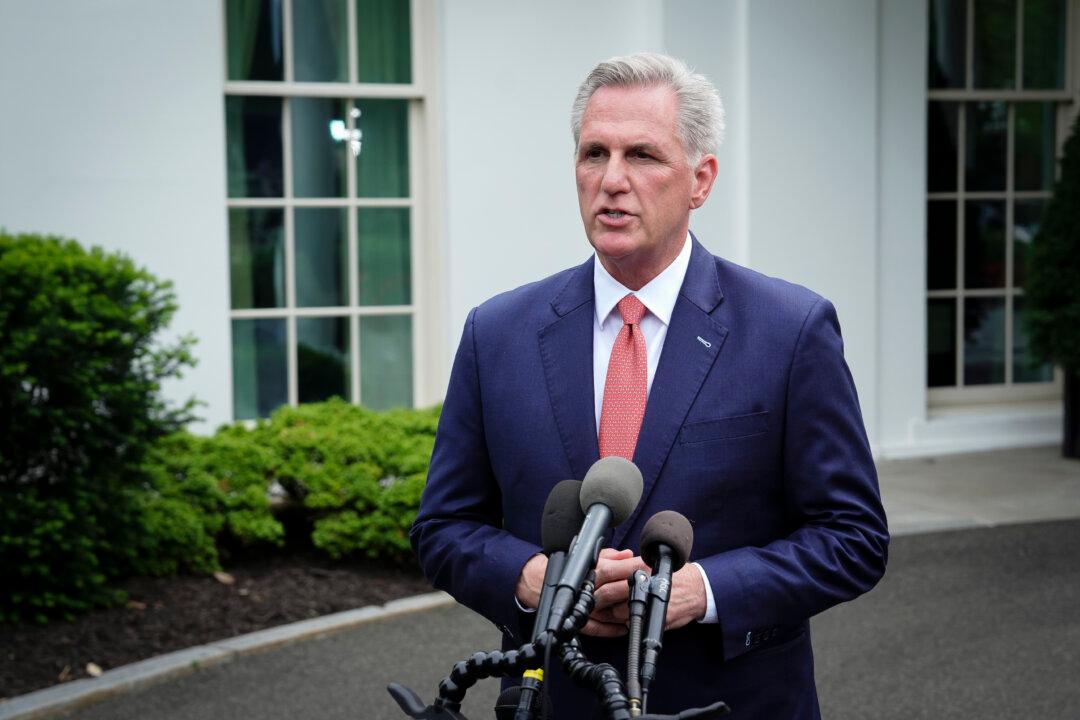House Speaker Kevin McCarthy (R-Calif.) expects to bring a deal on raising the federal debt ceiling before the House next week, he told reporters on May 18.
The positive tone marks a change for the Speaker, who as recently the day before had refused to say he was optimistic about reaching an agreement with President Joe Biden on raising the debt ceiling, along with spending caps and other provisions demanded by Republicans.





